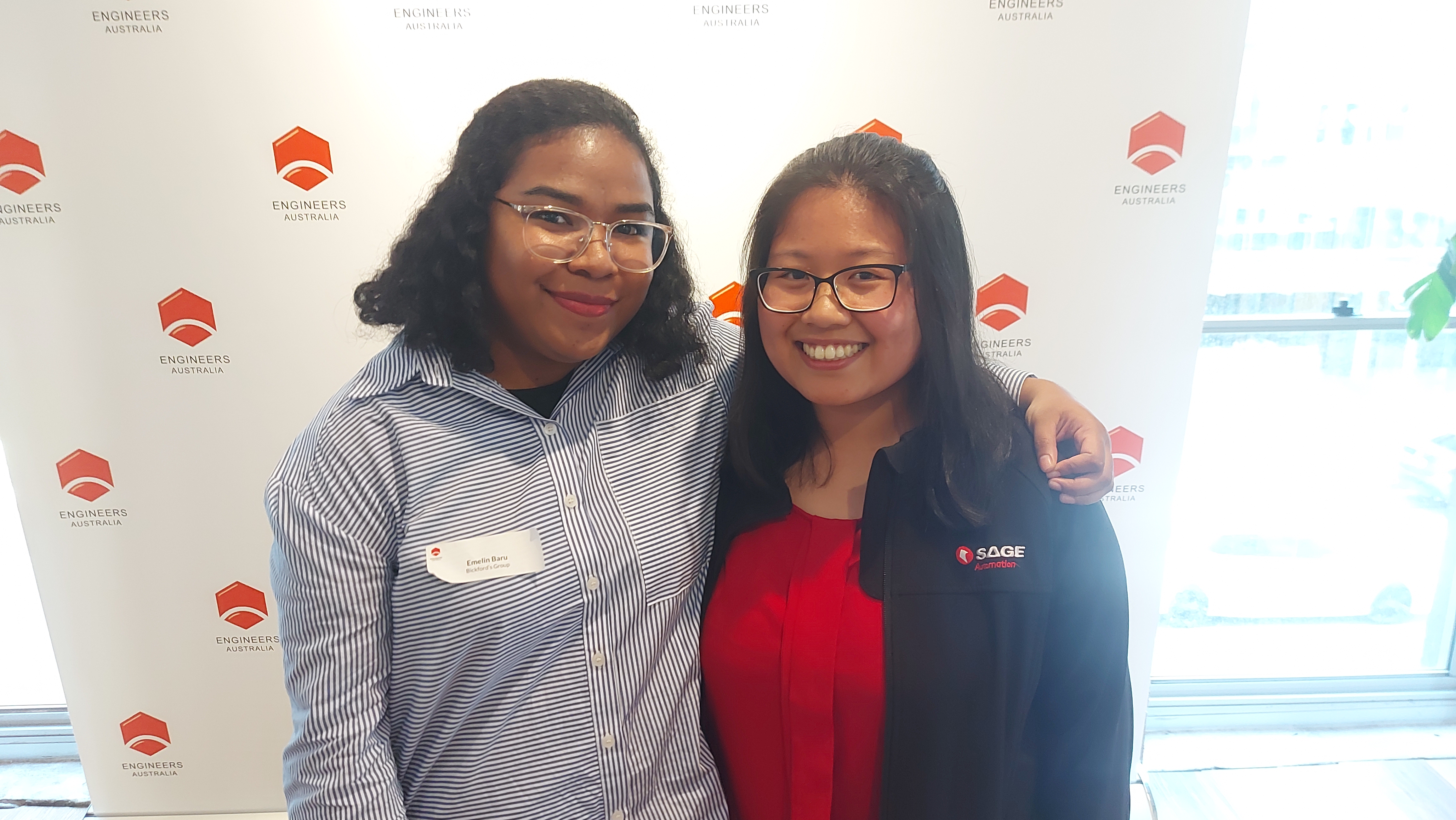We spoke to the 2022 GradHack first place winners’, Willa and Emelin, about their innovative energy harvesting floor.
This year’s GradHack saw two young engineers Willa Budiman and Emelin Ananda Baru (with Mark Brownley as mentor) present their sustainable engineering solution to a panel of judges, taking out first place for their innovative eco-floor and sparking conversations about sustainability and innovation.
Willa and Emelin both graduated with a bachelor's in mechanical and sustainable energy engineering from The University of Adelaide and are passionate about sustainable engineering.
Willa says “when they announced the topic for the competition, we were excited to challenge ourselves and contribute our ideas. The hackathon was a good opportunity to apply our engineering knowledge and learn new skills.”
The challenge was to identify a perceived problem for the Olympics and provide a sustainable engineering solution, which could possibly be presented to the Brisbane Organising Committee (BOC) in future.
The BOC has set goals to deliver a climate-positive Olympic and Paralympic games with long-term outcomes however, during their five-minute video presentation, the Green Stars team demonstrated that carbon emissions from the games are expected to increase dramatically due to electricity usage and transport.
So, they posed the question: what if visitors and athletes could be electricity producers when they compete in, and walk around, the venues? And that is where the eco-floor comes in.
According to Statista, an average of six million people attended the games over the past four summer Olympics, putting into perspective how many visitors are consuming energy, and realising the potential of unharnessed energy through the application of the energy harvesting floor.
Emelin Ananda Baru says “we did extensive research about energy harvesting technologies like using piezoelectric materials and sustainable development plans for the Brisbane 2032 Olympics.”
The team's winning engineering solution was the eco-floor, which is an energy harvesting floor harnessing the power of quartz as a piezoelectric material. Quartz is a plentiful resource in Australia making it an ideal choice.
The eco-floor's tile surface and frame will be made using recycled timber for sustainability. It will be supported by a spring that befriends a piece of electric plate, avoiding the chance of breaking, and comes with a frame to protect the structure of layers inside the tile.
The space between the middle and the bottom electric plates is used to store the connecting wire. The floating tile will move downwards when force is applied to the surface. This will generate an electric charge.
“This potential difference drives electric current through the connected circuit, generating electricity,” she explains, “so when we are walking, our feet apply pressure on the floor and trigger this to occur.”
The eco-floor can be installed on entrances and common walkways in existing sporting venues to generate electricity as people walk on it. The energy harvesting floor can remain in these sporting arenas or be further implemented in Brisbane hotspots, bringing long-term benefits after the Brisbane Olympics.
As well as modelling of the eco-floor, the Green Stars team also presented a safety, climate, material and costs analysis and proposed the eco-floor be trialled at the 2023 Brisbane Olympic Games.
The team reflected that the challenge brought to light the importance of collaboration and asking questions in order to solve a real problem.
“We asked out mentor Mark to help us with guidance about technological partnerships. We asked a friend working in structural engineering to verify the safety and feasibility of our design, and we even asked our family members for their point of view as potential users of the eco-floor.”
At an online finals event held last Thursday, host and General Manager of Student and Graduate Membership Samantha Zdjelar announced the Green Stars team as the winners of the Hackathon. Willa and Emelin were awarded $5000 for their innovative eco-floor.
Emelin says “we hope that we can inspire many young engineers to always challenge themself when the opportunities come.”
Willa adds “the GradHack helped us hone our problem-solving abilities, teamwork and critical thinking skills.
“And it's not going to stop here,” she says, “we are open and keen to challenge ourselves when future opportunities arise.”
Watch the video submissions from all our GradHack finalists, or fast forward to 14:19 to watch the Green Stars team and their winning presentation on the eco-floor.
Want to get more information? Check out the technical Q&A about the eco-floor on EA Xchange.

